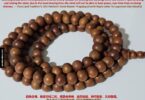
Answer: You can practise these steps: https://purelanders.com/2016/07/19/what-should-be-chanted-during-after-a-funeral Do adapt accordingly as the context of being at the funeral is not valid in this case, though a picture or his ancestral tablet at home can represent your Father as a focal point for the practice. You can also refer to page 88 of ‘The Pure Land Passport’ for more tips: https://purelanders.com/2015/12/30/important-guidelines-3-after-dying-pure-land-passport-section-4c
Q: At his request, some non-Buddhist Chinese rites were performed.
A: Frankly, they do not help much due to their convoluted nature, which offers not clear guidance for the deceased. However, some popular Taoist rites are mixed with some Buddhist practices, which are to the extent helpful if done well. However, it is hard to know what rites were done specifically.
Q: On the seventh day, I just chanted the name of Amitabha Buddha (Amituofo) and dedicated merits to him.
A: This is good. However, there should have been clear guidance offered too. The very same steps at https://purelanders.com/2016/07/19/what-should-be-chanted-during-after-a-funeral should be done.
Q: During the 49 days after death, I chanted Amituofo and short mantras for him. How can I further increase his chances of reaching Amituofo’s Pure Land quickly?
Q: Should I offer food and clothes at his ancestral tablet?
A: Clothes are not needed, while food is helpful only if he is reborn as a hungry ghost (or still a wandering spirit yet to take proper rebirth, or even as a nearby animal/insect). Usually, food is offered on the 49 days of death, as this is when rebirth might not have occurred yet, which is when the consciousness might want to take the essence of food for habitual nourishment.
Q: During the Qingming season and death anniversaries, what should be done?
A: This is what you might want to do: https://purelanders.com/2012/06/25/general-buddhist-pure-land-practices-during-qing-ming-ullambana However, note that Qingming and anniversaries have no Buddhist significance; being more of a Chinese cultural tradition for respectful remembrance.
Q: My siblings continue to bring food and paper clothes for burning, even during Chinese New Year.




